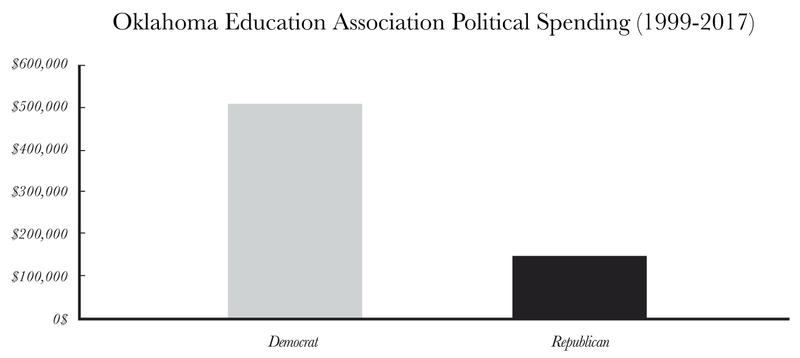
Education
OEA supports Horn
November 2, 2020
Curtis Shelton
Public-sector unions often affect how government operates. The 2018 teacher walkout, for example, was organized and funded in part by the Oklahoma Education Association (OEA) and the National Education Association (NEA). This sort of political activity and spending has become common for many public-sector unions in Oklahoma and across the country. A website called Public Union Facts has collected data on this spending for thousands of unions.
For example, 77.5 percent of the OEA’s political spending has gone to Democratic candidates.

Source: PublicUnionFacts.com
That trend continues this year with the OEA endorsing Kendra Horn in Oklahoma’s 5th Congressional District. The OEA has chosen to endorse Horn over her opponent, state Sen. Stephanie Bice, even though Bice voted in support of tax increases to fund teacher pay raises during the 2018 teacher walkout.
In recent years, union influence has attracted attention and criticism. In the U.S. Supreme Court case Janus v. AFSMCE, the Court ruled it unconstitutional, on the grounds of free speech and association, for government employees to be compelled to pay unions as a condition of employment. Even if a teacher has opted out of the union, that union still has the power to speak for the employee on employment matters. Many of these teachers, members or not, have never had the right to vote on what union (if any) should represent them. The Janus decision gives employees who disagree with a union’s ideology or the candidates it supports the right to opt out.